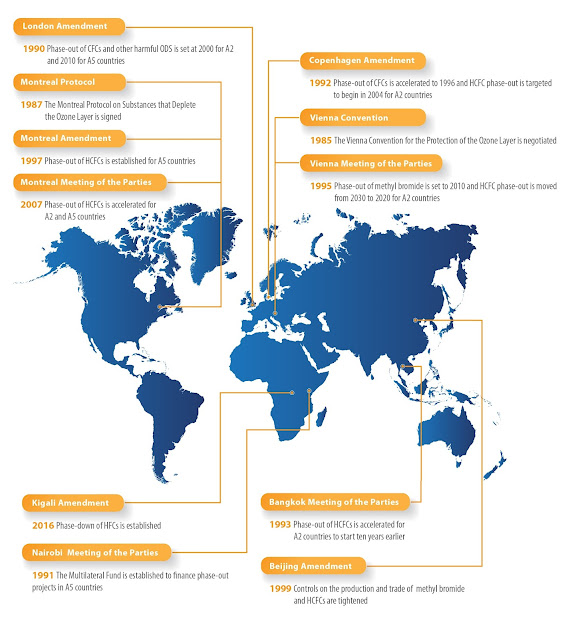The Montreal Protocol is an international treaty established in 1987 to protect the Earth's ozone layer. It is widely regarded as one of the most successful environmental agreements in history.

The treaty was created in response to concerns about the depletion of the ozone layer, which protects the Earth from harmful ultraviolet radiation. The depletion was caused by the emission of chemicals known as chlorofluorocarbons (CFCs) and other ozone-depleting substances.


The Montreal Protocol aims to phase out the production and consumption of these chemicals. The treaty has been successful in achieving its goals, and it is estimated that without the treaty, the ozone layer would have been depleted by an additional 20% by 2050. The treaty has also had positive effects on climate change, as many of the substances regulated by the treaty are also greenhouse gases.
The Montreal Protocol is an excellent example of how international cooperation and scientific research can be used to solve global environmental problems. Despite its success, there are still challenges to be faced, such as the illegal trade of ozone-depleting substances. However, the continued implementation and enforcement of the treaty will be critical in ensuring the protection of the ozone layer for future generations.
🎯Key Points : Montreal Protocol
Tags:
Montreal Protocol

